#Isaiah 65:14
Text
how to read the Bible
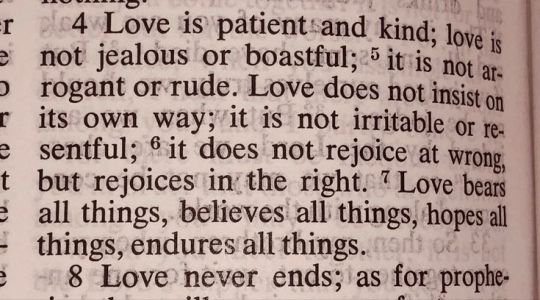
this is in order!
1. John
2. Mark
3. Matthew
4. Luke
5. Genesis
6. Exodus
7. Leviticus
8. Numbers
9. Dueteronomy
10. Romans
11. Galatians
12. Colossians
13. Proverbs
14. Ecclesiastes
15. Job
16. 1 Peter
17. 1 Corinthians
18. 2 Corinthians
19. Ephesians
20. Philippians
21. 1 Thessalonians
22. 2 Thessalonians
23. 1 Timothy
24. 2 Timothy
25. James
26. 2 Peter
27. 1 John
28. 2 John
29. 3 John
30. Jude
31. Psalms
32. Joshua
33. Judges
34. 1 Samuel
35. 2 Samuel
36. 1 Kings
37. 2 Kings
38. 1 Chronicles
39. 2 Chronicles
40. Ezra
41. Nehemiah
42. Jeremiah
43. Lamentations
44. Ezekiel
45. Joel
46. Amos
47. Obadiah
48. Nahum
49. Habakkuk
50. Zephaniah
51. Haggai
52. Zechariah
53. Malachi
54. Micah
55. Hosea
56. Luke
57. Esther
58. Jonah
59. Song of Solomon
60. Acts
61. Titus
62. Philemon
63. Hebrew
64. Isaiah
65. Daniel
66. Revelation
57 notes
·
View notes
Text
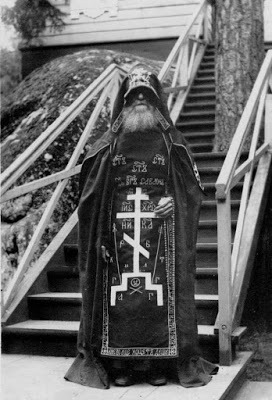
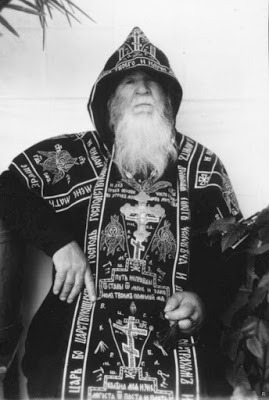
The άνάλαβος (analavos) is the distinctive garment of a monk or a nun tonsured into the highest grade of Orthodox monasticism, the Great Schema, and is adorned with the instruments of the Passion of Christ. It takes its name from the Greek αναλαμβάνω (“to take up”), serving as a constant reminder to the one who wears it that he or she must “take up his cross daily” (Luke 9:23). The ornately-plaited Crosses that cover the analavos, the polystavrion (πολυσταύριον, from πολύς, “many,” and σταυρός, “Cross”) — a name often, though less accurately, also applied to the analavos — reminds the monastic that he or she is “crucified with Christ” (Galatians 2:20).
With regard to each image on the analavos, the rooster represents “the cock [that] crowed” (Matthew 26:74; Mark 14:68 Luke 22:60; John 18:27) after Saint Peter had “denied thrice” His Master and Lord (John 13:38).
The pillar represents the column to which Pilate bound Christ “when he scourged Him” (Mark 15:15) “by Whose stripes we were healed” (Isaiah 53:5; I Peter 2:24).
The wreath garlanding the Cross represents the “crown of thorns” (Matthew 27:29; Mark 15:17; John 19:2) that “the soldiers platted” (John 19:2) and “put upon the head” (Matthew 27:29) of “God our King of old” (Psalm 73:13), Who freed man from having to contend against “thorns and thistles in the sweat of his brow” (Genesis 3:18-19).
The upright post and the traverse beam represent the stipes and the patibulum that formed “the Cross of our Lord Jesus Christ” (Galatians 6:14), upon which “all day long He stretched forth His hands unto a disobedient and gainsaying people” (Isaiah 65:2; Romans 10:21).
The four spikes at the center of the Cross and the hammer beneath its base represent the “nails” (John 20:25) and hammer with which “they pierced” (Psalm 21:16; John 19:37) “His hands and His feet” (Luke 24:40). when they “lifted up from the earth” (John 12:32) Him Who “blotted out the handwriting of ordinances that was against us by nailing it to His Cross” (Colossians 2:14).
The base upon which the Cross stands represents “the place, which is called 'Calvary' (Luke 23:33), or 'Golgotha', that is to say, the Place of the Skull” (Matthew 27:33), “where they crucified Him” (John 19:18) Who “wrought salvation in the midst of the earth” (Psalm 73:13).
The skull and crossbones represent “the first man Adam” (I Corinthians 15:45), who by tradition “returned unto the ground” (Genesis 3:19) at this very spot, the reason that this place of execution, “full of dead men’s bones” (Matthew 23:27) became the place where “the last Adam was made a quickening spirit” (I Corinthians 15:45).
The plaque on top of the Cross represents the titulus, the “title” (John 19:19-20), with “the superscription of His accusation” (Mark 15:26), which “Pilate wrote” (John 19:19) “and set up over His head” (Matthew 27:37); however, instead of “Jesus of Nazareth the king of the Jews” (John 19:19), which “was written over Him in letters of Greek, and Latin, and Hebrew” (Luke 23:38), the three languages being an allusion to the Three Hypostases “of the Father, and of the Son, and of the Holy Spirit” (Matthew 28:19), this titulus reads, “The King of Glory” (Psalm 23:7-10), “for had they known it they would not have crucified the Lord of glory” (I Corinthians 2:8).
The reed represents the “hyssop” (John 19:29) upon which was put “a sponge full of vinegar” (Mark 15:36), which was then “put to His mouth” (John 19:29) when in His “thirst they gave Him vinegar to drink” (Psalm 68:21), Him of Whom it was said that “all wondered at the gracious words which proceeded out of His mouth” (Luke 4:22).
The lance represents the “spear [that] pierced His side”; “and forthwith came there out blood and water” (John 19:34) from Him Who “took one of Adam's ribs, and closed up the flesh instead thereof" (Genesis 2:21) and Who “washed us from our sins in His own blood” (Revelation 1:5).
The plaque at the bottom of the Cross represents the suppedaneum of Christ, “His footstool” (Psalm 98:5), “the place where His feet have stood” (Psalm 131:7). It is slanted because, according to one tradition, at the moment when “Jesus cried with a loud voice, and gave up the spirit” (Mark 15:37), He allowed a violent death spasm to convulse His legs, dislodging His footrest in such a manner that one end pointed upwards, indicating that the soul of the penitent thief, Saint Dismas, “the one on His right hand” (Mark 15:27) would be “carried up into Heaven” (Luke 24:51), while the other end, pointed downwards, indicated that the soul of the impenitent thief, Gestas, “the other on His left” (Mark 15:27), would “be thrust down to Hell” (Luke 10:15), showing that all of us, “the evil and the good, the just and the unjust” (Matthew 5:45), “are weighed in the balance” (Ecclesiasticus 21:25) of the Cross of Christ.
The ladder and the pincers beneath the base of the Cross represent the means of deposition by which Saint Joseph of Arimathea, “a rich man” (Matthew 27:57) who “begged for the body of Jesus” (Matthew 27:58; Luke 23:52), “took it down” (Luke 23:53), so that as in body He descended from the Cross, so in soul “He also descended first into the lower parts of the earth” (Ephesians 4:9), “by which also He went and preached unto the spirits in prison” (I Peter 3:19).
Through these instruments, “the Cross of Christ” (I Corinthians 1:17: Galatians 6:12; Philippians 3:18) became the “Tree of Life” (Genesis 2:9; 3:22, 24; Proverbs 3:18, 11:30; 13:12; 15:4; Revelation 2:7; 22:2,14), by which the Lord Jesus reified His words that, “I am the resurrection, and the life: he that believeth in Me, though he were dead, yet shall he live, and whosoever liveth and believeth in Me shall never die” (John 11:25-26).
[source]
17 notes
·
View notes
Text

The First Lord’s Day: Jesus Rises
1-7 When the Sabbath was over, just as the first day of the week was dawning Mary from Magdala and the other Mary went to look at the tomb. At that moment there was a great earthquake, for an angel of the Lord came down from Heaven, went forward and rolled back the stone and took his seat upon it. His appearance was dazzling like lightning and his clothes were white as snow. The guards shook with terror at the sight of him and collapsed like dead men. But the angel spoke to the women, “Do not be afraid. I know that you are looking for Jesus who was crucified. He is not here—he is risen, just as he said he would. Come and look at the place where he was lying. Then go quickly and tell his disciples that he has risen from the dead. And, listen, he goes before you into Galilee! You will see him there! Now I have told you my message.”
8 Then the women went away quickly from the tomb, their hearts filled with awe and great joy, and ran to give the news to his disciples.
9-10 But quite suddenly, Jesus stood before them in their path, and said, “Peace be with you!” And they went forward to meet him and, clasping his feet, worshipped him. Then Jesus said to them, “Do not be afraid. Go now and tell my brothers to go into Galilee and they shall see me there”
11-15 And while they were on their way, some of the sentries went into the city and reported to the chief priests everything that had happened. They got together with the elders, and after consultation gave the soldiers a considerable sum of money and told them, “Your story must be that his disciples came after dark, and stole him away while you were asleep. If by any chance this reaches the governor’s ears, we will put it right with him and see that you do not suffer for it.” So they took the money and obeyed their instructions. The story was spread and is current among the Jews to this day.
Jesus gives his final commission
16-17 But the eleven went to the hill-side in Galilee where Jesus had arranged to meet them, and when they had seen him they worshipped him, though some of them were doubtful.
18-20 But Jesus came and spoke these words to them, “All power in Heaven and on earth has been given to me. You, then, are to go and make disciples of all the nations and baptise them in the name of the Father and of the Son and of the Holy Spirit. Teach them to observe all that I have commanded you and, remember, I am with you always, even to the end of the world.”
— Matthew 28 | J.B. Phillips New Testament (PHILLIPS)
The New Testament in Modern English by J.B Phillips copyright © 1960, 1972 J. B. Phillips.
Cross References: Proverbs 8:15; Isaiah 9:6; Jeremiah 26:2; Daniel 7:9; Daniel 10:6; Matthew 9:31; Matthew 12:14; Matthew 12:40; Matthew 14:27; Matthew 16:21; Matthew 23:7; Matthew 26:32; Matthew 27:2; Matthew 27:8; Matthew 27:56 Matthew 27:60-61; Matthew 27:65-66; Mark 1:45; Mark 14:28; Mark 15:41; Mark 16:4; Mark 16:7; Mark 16:11; Luke 24:47; John 20:14; John 20:17; Acts 1:2-3; Acts 1:8; Acts 18:10; Revelation 1:17
#Jesus Christ#resurrection#the guard's report#the Great Commission#Matthew 28#Gospel of Matthew#PHILLIPS#J.B. Phillips New Testament Bible
8 notes
·
View notes
Text
Previously, on Apocrypals part 5: The Fifth One
As we begin our sixth (!) calendar year of Apocrypals, here is a list of the texts we have covered so far on the show in case you want to read along or catch up. They’re arranged in a way that appeases my systematic nature.
Tanakh/Old Testament:
Genesis (episodes 16-20)
Exodus (episodes 33 and 35)
Leviticus (episode 59)
Numbers (episode 62)
Deuteronomy (episode 65)
Joshua (episode 73)
Judges (episode 80)
Ruth (episode 45)
1 Samuel (episode 89)
2 Samuel (episode 90-91)
1 Kings (episode 99)
2 Kings (episode 106)
Esther (episode 37)
Job (episode 101)
Ecclesiastes (episode 52)
Song of Songs (episode 34)
Isaiah (episode 4)
Jeremiah (episode 43-44)
Lamentations (episode 48)
Ezekiel (episode 55-56)
Daniel (episode 2)
Hosea (episode 108)
Jonah (episode 31)
Micah (episode 74)
Nahum (episode 74)
Deuterocanon/capital-A Apocrypha:
Tobit (episode 13)
Judith (episode 22)
Greek Additions to Esther (episode 37)
1 Maccabees (episode 27)
2 Maccabees (episode 28)
3 Maccabees (episode 53)
4 Maccabees (episode 78)
The Prayer of Azariah aka the Song of the Three Holy Children (episode 2)
Susanna (episode 2)
Bel and the Dragon (episode 2)
The Prayer of Manasseh (episode 6)
New Testament:
Matthew (episodes 8-9)
Mark (episode 7)
Luke (episode 10)
John (episode 11-12)
Acts of the Apostles (episode 1)
Romans (episode 5)
1 Corinthians (episode 25)
2 Corinthians (episode 42)
Galatians (episode 72)
Ephesians (episode 81)
Hebrews (episode 104)
1 John (episode 49)
2 John (episode 49)
3 John (episode 49)
Revelation (episode 50)
Pseudepigrapha (Jewish apocrypha):
The Testament of Solomon (episode 24)
The Story of Ahikar (episode 14)
The Ascension of Isaiah (episode 6)
1 Enoch (episode 39-40)
2 Enoch (episode 61)
3 Enoch (episode 86-87)
Jubilees (episodes 82 and 83)
The Letter of Aristeas (episode 70)
The War of the Sons of Light Against the Sons of Darkness (episode 71)
Joseph and Aseneth (episode 93)
New Testament apocrypha:
The Protevangelium aka Infancy Gospel of James (episode 29)
The Acts of Pilate/Gospel of Nicodemus (episode 23)
Mors Pilati/Death of Pilate (episode 23)
The Acts of Paul and Thecla (episode 22)
The Acts of Peter (episode 3)
The Acts of Peter and Paul (episode 3)
The Acts of Andrew and Matthias (episode 60)
The Acts of Thomas and His Wonderworking Skin (episode 66)
The Life of Xanthippe, Polyxena, and Rebecca (episode 57)
Questions of Bartholomew (episode 41)
Resurrection of Jesus Christ by Bartholomew (episode 41)
The Book of Bartholomew (episode 67)
Acts of John (episode 46)
The Acts of Andrew (episode 97)
Syriac Infancy Gospel (episode 47)
Infancy Gospel of Thomas (episode 54)
Infancy Gospel of Pseudo-Matthew (episode 79)
The Adoration of the Magi (2020 Christmas bonus episode)
The History of Joseph the Carpenter (episode 103)
The First Apocryphal Apocalypse of John (episode 68)
The Second Apocryphal Apocalypse of John (episode 68)
The Third Apocryphal Apocalypse of John (episode 68)
The Apocalypse of Peter (episode 75)
The Apocalypse of Paul (episode 95)
The Gospel of Philip (episode 92)
The Gospel of Mary (episode 92)
The Gospel of Jesus’s Wife (episode 92)
The Gospel of Judas (episode 100)
The Greater Questions of Mary (episode Secret 69)
The Golden Legend of Jacobus de Voragine:
The Life of Saint Nicholas (episode 26)
The Life of Saint Lucy (episode 26)
The Life of Saint Christopher (episode 15)
The Life of Saint Benedict (episode 15)
excerpts from The Passion of the Lord (episode 23)
The Life of Saint Sebastian (episode 58)
The Life of Saint Blaise (episode 58)
The Life of Saint Agatha (episode 58)
The Life of Saint Roch (episode 63)
The Life of Saint Catherine of Alexandria (episode 77)
The Life of Saint Barbara (episode 77)
The Life of Saint Dunstan (episode 85)
The Life of Mary Magdalene (episode 94)
The Life of Saint Martha of Bethany (episode 102)
The Life of Saint Margaret of Antioch (episode 102)
Other:
Historia Trium Regum/The Legend of the Three Kings by John of Hildesheim (episode 30)
Muirchu’s Life of Saint Patrick (episode 36)
The Life of Saint Guinefort (episode 63)
The Life of Saint Mary of Egypt (episode 69)
The Life of Saint Pelagia (episode 69)
The Life of Saint Martin by Sulpicius Severus (episode 76)
The Life of Saint Columba (episode 84)
The Life of Saint Wilgefortis (episode 94)
Lives of cephalophoric saints (bonus episode cephalo4)
Stories of the Baal Shem Tov from The Golden Mountain (episode 96)
More stories of the Baal Shem Tov from The Golden Mountain (episode 107)
Solomon and Ashmedai (bonus episode double chai)
Listener questions (episode 32)
Bible trivia questions (episode 38)
Halloween-themed Chick tracts (episode 51)
Christmas-themed Chick tracts (episode 98)
Bible Adventures and the Wisdom Tree catalogue of video games (episode 64)
The Da Vinci Code, the movie (episode 88)
Guess the Bible character from Persona 5 (bonus episode Persona 5)
El Shaddai: Ascension of the Metatron (episode 105)
You can find links to all these episodes with show notes and more on the Apocrypals wiki
#apocrypals#podcast#podcasts#religion#bible#christianity#judaism#apocrypha#old testament#new testament#hagiography
88 notes
·
View notes
Text
Books of the Bible
Here is a detailed list of the 66 books of the Bible, divided by the Old and New Testaments, along with their divisions and categories:
**Old Testament:**
**Pentateuch (5 books):**
1. Genesis
2. Exodus
3. Leviticus
4. Numbers
5. Deuteronomy
**Historical Books (12 books):**
6. Joshua
7. Judges
8. Ruth
9. 1 Samuel
10. 2 Samuel
11. 1 Kings
12. 2 Kings
13. 1 Chronicles
14. 2 Chronicles
15. Ezra
16. Nehemiah
17. Esther
**Poetry/Wisdom Books (5 books):**
18. Job
19. Psalms
20. Proverbs
21. Ecclesiastes
22. Song of Solomon
**Major Prophets (5 books):**
23. Isaiah
24. Jeremiah
25. Lamentations
26. Ezekiel
27. Daniel
**Minor Prophets (12 books):**
28. Hosea
29. Joel
30. Amos
31. Obadiah
32. Jonah
33. Micah
34. Nahum
35. Habakkuk
36. Zephaniah
37. Haggai
38. Zechariah
39. Malachi
**New Testament:**
**Gospels (4 books):**
40. Matthew
41. Mark
42. Luke
43. John
**History (1 book):**
44. Acts
**Pauline Epistles (13 books):**
45. Romans
46. 1 Corinthians
47. 2 Corinthians
48. Galatians
49. Ephesians
50. Philippians
51. Colossians
52. 1 Thessalonians
53. 2 Thessalonians
54. 1 Timothy
55. 2 Timothy
56. Titus
57. Philemon
**General Epistles (8 books):**
58. Hebrews
59. James
60. 1 Peter
61. 2 Peter
62. 1 John
63. 2 John
64. 3 John
65. Jude
**Apocalyptic (1 book):**
66. Revelation
This list represents the traditional order and grouping of the books of the Bible in most Christian denominations.

These are the 66 books that make up the Bible.
Title: The Significance of Each Book of the Bible
Introduction:
The Bible is a collection of 66 books that together form the inspired Word of God. Each book has its own unique message, themes, and significance that contribute to the overall story of God's redemption and love for humanity. Let's explore the importance of each book of the Bible.
Lesson Points:
1. The Old Testament:
- Genesis: The book of beginnings, detailing creation, the fall, and the establishment of God's covenant with His people.
- Exodus: The story of the Israelites' liberation from Egypt and the giving of the Law at Mount Sinai.
- Psalms: A collection of songs and prayers that express a range of human emotions and provide a guide for worship.
- Proverbs: Wisdom literature that offers practical advice for living a righteous and wise life.
- Isaiah: Prophecies about the coming Messiah and God's plan of salvation.
2. The New Testament:
- Matthew: Emphasizes Jesus as the fulfillment of Old Testament prophecies and the establishment of the kingdom of God.
- Acts: Chronicles the early spread of the Gospel and the growth of the early church.
- Romans: Explains the doctrine of justification by faith and the implications of salvation through Christ.
- Corinthians: Addresses issues within the church and provides practical guidance for Christian living.
- Revelation: Offers apocalyptic visions of the end times, the victory of Christ, and the establishment of the new heaven and earth.
3. Themes and Messages:
- Each book of the Bible contributes to the overarching themes of God's love, redemption, forgiveness, and salvation for all humanity.
- Together, these books provide a complete narrative of God's work in the world and His plan for His people.
Application:
- Take time to explore and study each book of the Bible, seeking to understand its unique message and significance.
- Reflect on how the themes and stories in the Bible can impact your own life and faith journey.
- Consider how the teachings and examples in the Bible can shape your beliefs and actions as a follower of Christ.
Conclusion:
The books of the Bible are not just separate entities but are interconnected parts of the larger story of God's redemption and love for humanity. Each book has its own importance and contributes to the overall message of God's plan for salvation. May we approach the study of the Bible with reverence and openness to the wisdom and guidance it offers for our lives.

2 notes
·
View notes
Text
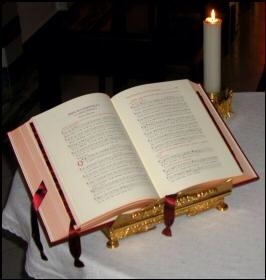
11th March >> Mass Readings (USA)
Monday, Fourth Week of Lent - Proper Readings
(see also The Man Born Blind on Sunday, 10th March)
(Liturgical Colour: Violet: B (2))
First Reading
Isaiah 65:17-21
No longer shall the sound of weeping or the sound of crying be heard.
Thus says the LORD:
Lo, I am about to create new heavens
and a new earth;
The things of the past shall not be remembered
or come to mind.
Instead, there shall always be rejoicing and happiness
in what I create;
For I create Jerusalem to be a joy
and its people to be a delight;
I will rejoice in Jerusalem
and exult in my people.
No longer shall the sound of weeping be heard there,
or the sound of crying;
No longer shall there be in it
an infant who lives but a few days,
or an old man who does not round out his full lifetime;
He dies a mere youth who reaches but a hundred years,
and he who fails of a hundred shall be thought accursed.
They shall live in the houses they build,
and eat the fruit of the vineyards they plant.
The Word of the Lord
R/ Thanks be to God.
Responsorial Psalm
Psalm 30:2 and 4, 5-6, 11-12a and 13b
R/ I will praise you, Lord, for you have rescued me.
I will extol you, O LORD, for you drew me clear
and did not let my enemies rejoice over me.
O LORD, you brought me up from the nether world;
you preserved me from among those going down into the pit.
R/ I will praise you, Lord, for you have rescued me.
Sing praise to the LORD, you his faithful ones,
and give thanks to his holy name.
For his anger lasts but a moment;
a lifetime, his good will.
At nightfall, weeping enters in,
but with the dawn, rejoicing.
R/ I will praise you, Lord, for you have rescued me.
“Hear, O LORD, and have pity on me;
O LORD, be my helper.”
You changed my mourning into dancing;
O LORD, my God, forever will I give you thanks.
R/ I will praise you, Lord, for you have rescued me.
Gospel Acclamation
Amos 5:14
Seek good and not evil so that you may live,
and the LORD will be with you.
Gospel
John 4:43-54
Go, your son will live.
At that time Jesus left [Samaria] for Galilee. For Jesus himself testified that a prophet has no honor in his native place. When he came into Galilee, the Galileans welcomed him, since they had seen all he had done in Jerusalem at the feast; for they themselves had gone to the feast.
Then he returned to Cana in Galilee, where he had made the water wine. Now there was a royal official whose son was ill in Capernaum. When he heard that Jesus had arrived in Galilee from Judea, he went to him and asked him to come down and heal his son, who was near death. Jesus said to him, “Unless you people see signs and wonders, you will not believe.” The royal official said to him, “Sir, come down before my child dies.” Jesus said to him, “You may go; your son will live.” The man believed what Jesus said to him and left. While the man was on his way back, his slaves met him and told him that his boy would live. He asked them when he began to recover. They told him, “The fever left him yesterday, about one in the afternoon.” The father realized that just at that time Jesus had said to him, “Your son will live,” and he and his whole household came to believe. Now this was the second sign Jesus did when he came to Galilee from Judea.
The Gospel of the Lord
R/ Praise to you, Lord Jesus Christ.
1 note
·
View note
Text
Heartstrings: Glorious Praise to the God of Heaven and Earth
Praising God from a pure heart, acknowledging Him in all of our ways, is pleasing in His sight. He is God, Creator, and Ruler of all. We have no life apart from Him. The life of every living creature, and the breath of all mankind is in His hand. (See Job 12:10)
He has no pleasure in disloyal hearts. (See 1 Samuel 15:20-23, Isaiah 29:13-14, Ezekiel 33:31-32, and John 4:21-24)
"Let us lift our hearts and hands to God in heaven." (Lamentations 3:41)
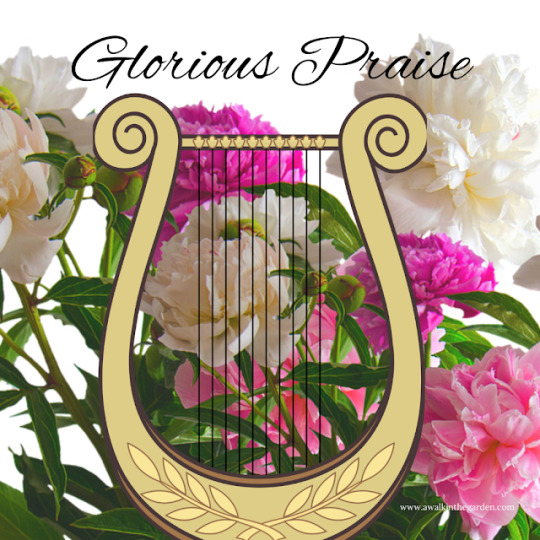
"Oh come, let us sing to the Lord! Let us shout joyfully to the Rock of our salvation. Let us come before His presence with thanksgiving; let us shout joyfully to Him with psalms. For the Lord is the great God, and the great King above all gods. In His hand are the deep places of the earth; the heights of the hills are His also. The sea is His, for He made it; and His hands formed the dry land. Oh come, let us worship and bow down; let us kneel before the Lord our Maker. For He is our God, and we are the people of His pasture, and the sheep of His hand." (Psalm 95:1-7)
See Also: Psalm 1, Psalm 2, Psalm 3, Psalm 4, Psalm 5, Psalm 7, Psalm 8, Psalm 9, Psalm 13, Psalm 16, Psalm 18, Psalm 19, Psalm 22, Psalm 23, Psalm 24, Psalm 27, Psalm 28, Psalm 29, Psalm 30, Psalm 33, Psalm 34, Psalm 42, Psalm 43, Psalm 47, Psalm 48, Psalm 50, Psalm 64, Psalm 65, Psalm 66, Psalm 67, Psalm 75, Psalm 81, Psalm 89, Psalm 92, Psalm 98, Psalm 99, Psalm 100, Psalm 101, Psalm 103, Psalm 104, Psalm 105, Psalm 106, Psalm 107, Psalm 108, Psalm 111, Psalm 112, Psalm 113, Psalm 115, Psalm 117, Psalm 118, Psalm 134, Psalm 138, Psalm 144, Psalm 145, Psalm 146, Psalm 147, Psalm 148, Psalm 149, Psalm 150
For deeper meditation, read the entire Book of Psalms.
Speak to one another, in psalms and hymns and spiritual songs. Sing and make melody in your heart to the Lord, giving thanks always, for all things to God the Father, in the name of our Lord Jesus Christ. {Ephesians 5:19}
- A Walk In The Garden Devotions
7 notes
·
View notes
Text


✅Divorce after 7 years of marriage
✅Split custody of son
✅Take a tech job in Mt. Komorebi a year later
📚Isaiah's History Below📚
Isaiah Goode's life was always going to be chaotic. There was no chance of him dodging that. He was born to a 65-year-old Art Curator and a 41-year-old mother of 14. His mother, Stephanie, had custody of NONE of her children. She consistently partied, loved & divorced too much. His father, Jim, was much more stable. Everyone actually wondered how Jim got tangled up with Stephanie. They fell in love hard & fast, and she quickly moved into Jim's spacious home. Other people doubted Stephanie's sincerity, but not Jim. He was too trusting. While they were engaged, their pregnancy with Isaiah was announced. He was Stephanie's 15th child.




Things quickly fell apart after Isaiah's birth, with his parents constantly fighting & throwing around accusations of infidelity. Jim was faithful. Stephanie, of course, was not. By age 1, Isaiah's parents had split.




By age 2 Isaiah's sole guardian, his father, passed away. He was then raised by his father's niece Jessica, while his mom sporadically came to visit.






By age 12, Isaiah's mom had custody of him. She had vowed that she was a changed woman. And for the most part, she was.




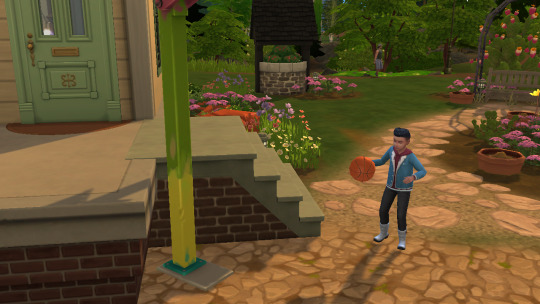
When Isaiah was 16, they moved to Sulani, and the home was covered in family photos, which is what Isaiah wanted.



Isaiah always had an aversion to stress. He hated it, and would do anything to avoid anxiety-inducing triggers. Sulani was perfect for him, and he spent his last year of high school swimming, fishing, learning the Sulani culture, and boating. He even got his first girlfriend, Britney.


But all good things must come to an end. His mom's past hard partying lifestyle caught up to her. She only asked of one thing from her son: please graduate from university. She wanted him to do something that she was never able to. So at age 18, days before he received his university acceptance letter, Isaiah's mom died.


Everything after that was a blur for Isaiah. For 4 years he worked hard through university, and even wanted to quit many times. He was filled with anxiety AND grief, and increasingly became more isolated & lonely. Especially since he and Britney had separated as she had moved away to San Myshuno.
But it worked out in the end, and Isaiah graduated with a degree in Business.


3 notes
·
View notes
Text
THE MOST HIGH GOD OF ISRAEL YAHAWAH BAHASHAM YAHAWASHI WILL SAVE A REMNANT OF HIS CHOSEN PEOPLE!!!!!
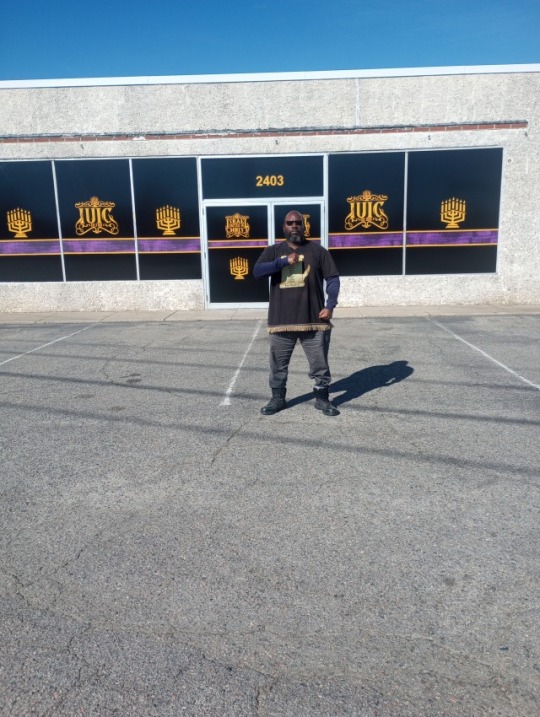




ISAIAH CHAPTERS 11-65
REVELATION CHAPTERS 7-14
8 notes
·
View notes
Text
Back To Basics Lesson 28: A New Beginning
We have studied in previous lessons that the righteous will go with Jesus to heaven at the second coming. Did you know that this is not the final destination for God’s people? Let’s learn more in today’s lesson.
Let’s read together Isaiah 35:1-10; Isaiah 65:17-25; and Revelation 21:1-7.
After the destruction of the wicked and the end of sin, Jesus is going to remake the heavens and earth. Why is He doing this? God’s people are going to experience an earth that has not been marred by sin. God’s people are going to experience earth as Adam and Eve did, as God had originally intended.
Let’s read together Isaiah 11:6-9; Isaiah 65:17-25; Revelation 11:15; and Revelation 22:1-5.
Remember what Jesus said in Matthew 5:5? “Blessed are the meek, for they shall inherit the earth.” We can better appreciate what Jesus said. We will live on earth where all animals live in harmony. We will plant and build. We will all eat from the tree of life. There will be no sickness, pain, sorrow, or death.
Let’s read together John 14:1-3; 1 Corinthians 2:9; 1 Corinthians 13:12-13; and 1 John 4:8.
The most glorious thing about living on the new earth is not the streets of gold in New Jerusalem, experiencing the beauty of a perfect earth, or even the tree of life. We will see Jesus face to face! We will have a direct personal relationship with God! We will know more fully the love of God.
All the lessons we have learned point to Jesus as God, and God is love.
Friend, are you ready to meet Jesus?
6 notes
·
View notes
Text

// when, upon looking back, the things of your life feel inexplicable //
..and you wonder in your heart, what is it all for?
Nothing matters the way it used to, and you can’t figure out if you’re supposed to try to make things matter again via medications or exercise or therapy or the taking-up of new hobbies. Do you try to generate inspiration yourself? What about when you’re worried about the effect this change has on the people around you? When it feels like apathy and depression are literally stealing time and life from you? What is one supposed to do…? How do you explain the series of inexplicable life events? Where you didn’t do anything wrong, but now you are no longer the same?
I am finding that the only way to continue on in these varying states, is if HE tells me exactly what I’m experiencing because otherwise how could you actually make sense of everything and not live in a state of panic..? So for the last 5 years He has continually done so.
I have been thinking about these things lately - the question of apathy and depression, and specifically this morning about emotional poverty versus oppression, and literally opened a devo app this morning and this was on the screen:
“Again, they are diminished and brought low through oppression, affliction, and sorrow.” - Ps 107V39
Oppression is the exercise of strength against weakness, the triumph of power over helplessness; so that poverty literally opens the door for oppression. It was so with Hezekiah. When Hezekiah was laid on his bed of sickness, death stared him in the face, and he expected he should be cut off, and cast into perdition. This opened the door for oppression; says he, “Lord, I am oppressed; undertake for me.” The cold damps of death stood upon his forehead, and despair pressed upon his soul. All his fleshly religion vanished in a moment; and he had but just faith and strength enough to cry out under the gripe of the oppressor’s hand at his throat, “Undertake for me” (Isaiah 38:14).
Oppression then is a weight and a burden superadded to poverty. It is not the same thing as poverty, but it is an additional infliction to poverty. A man may be poor without being oppressed; but when he is poor and oppressed too, it makes the poverty tenfold greater than before. Thus the Lord, in his dealings with his people in order to bring them down, first strips them and makes them poor; and when he has made them poor, and brought them into the depths of soul-destitution, then he causes burdens to lie on them as heavy loads, as though they would sink them into a never-ending hell.
But here is the mark of life; the groaning, panting, sighing, and crying of the soul under the burden. The dead in sin feel nothing; the hypocrites in Zion feel nothing; and those that are at ease in a fleshly religion feel nothing. They may have powerful temptations; they may have alarming fears of going to hell; but as to any heavings up of a quickened conscience under the weight of oppression, as to any pouring out of the heart before God, or any giving vent to the distresses of the soul in sighs and cries unto the Lord to have mercy, to speak peace, and bring in a sweet manifestation of pardon and love, and to keep at this day after day, and night after night until the Lord appears; these are exercises unknown to the dead, and peculiar to the living family.
A man may “cry for sorrow of heart, and howl for vexation of spirit” (Isaiah 65:14), but as the prophet speaks, “they do not cry unto God with their heart, when they howl upon their beds” (Hosea 7:14). But to breathe and pant after the Lord, to groan and sigh because of oppression, to wrestle with the Savior and give him no rest until he appears in the soul—this inward work is known only to the elect, and is out of the reach of all who have a name to live while they are dead. It is the fruit of the pouring out of the spirit of grace and supplications into their soul; it is the work of the Holy Spirit in the heart, helping its infirmities, and making intercession in it with groanings which cannot be uttered.
// J. C. Philpot, 1802-1869
#anxiety#depression#faith#jesus#hope#mental health#heartache#anxious#faith life#pain#suffering#emotional poverty#poverty#oppression#damaged emotions#despair#apathy
2 notes
·
View notes
Text
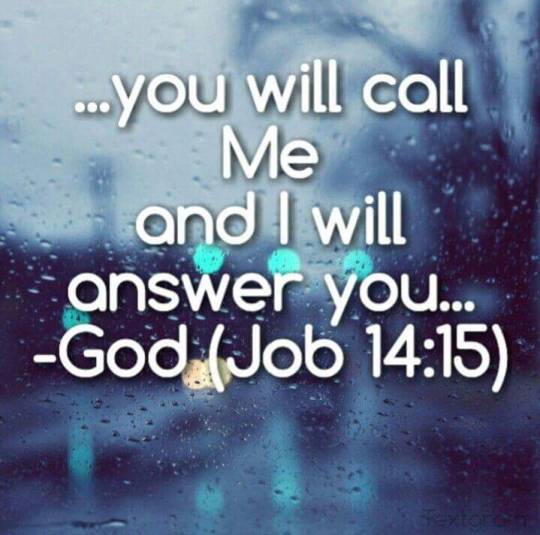
Good Morning!☀️
Thou shalt call, and I will answer thee: thou wilt have a desire to the work of thine hands. Job 14:15
When we call on God, we will not get a busy signal. He will not look at the Caller ID and decide not to answer. He is more desirous to hear from us than we often are to talk to him!
Not only will he answer when we call, he hears us before we call:
And it shall come to pass, that before they call, I will answer; and while they are yet speaking, I will hear. Isaiah 65:24
God will not ignore us. He will hear our call and he will respond. Will we respond when he calls us?
5 notes
·
View notes
Text
Judges 8: 22-27. "The Earring."
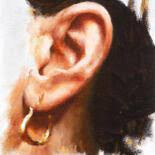
Jewish boys must witness bravery but not shed blood. It is the job of a legal, lawfullly manned governmnet to explain when to save lives and when to end them. This, along with the study of the Torah instills the action orientation called justice within a male Jewish boy.
To rule over the Jewish Self, however more is needed, however. A good heart. It is good sweet and hot to ponder a brave and just man, but without a heart he is no good. In order to cure the heart of the need for drama, displays, disingenuity, all the malfunctioning organ systems of the ego, the Rab prescribes what is called the Ephod, the imprint of the most noble characteristics of the Self upon the chest.
All of the alefbeis performs as the Ephod. About this there is no doubt. The more one studies the Torah and digs into the meaning of the noumena of the alefbeis, the more noble the heart becomes.
It is the noumena contained in the Torah that are the focus of the following passage. Noumena (in Kantian philosophy) a thing as it is in itself, as distinct from a thing as it is knowable by the senses through phenomenal attributes. This means we must know we are a Ruby, a leader, and wield the attributes naturally as the product of this knowlege. To be Simeon, "to resound" to have a good reputation must be the result of a disctinct way one knows about oneself.
The subject matter that follows concerns Ishmaelites, who "hear, respond and obey" like slave boys, except their conduct is exemplary as their masters are of the noblest class. The Gematria includes a reference to each being connected to the Rab through an earring, also through male prostitution, which means the relationship is called Shabbar, "to be satisfied by pure meaning", involving a High and a Low Priest.
To bar is to complete an ordinanance between man and other men and between God and all men. To shab is "to sate":
The root שבע (sb'; now spelled as שׂבע (sb') and pronounced with an s) means to be sated or satisfied with food. It's used literally for people who have (or don't have) enough to eat (Hosea 4:10) or drink (Amos 4:8), but also for the earth sated with rain (Proverbs 30:16), a sword drinking its fill with blood (Jeremiah 46:10). Our verb is also used for fillers other than food: Harlotry (Ezekiel 16:28), plunder (Jeremiah 50:10), an observation (Isaiah 53:10), the goodness of God's house (Psalm 65:4), sons (Psalm 17:14).
And also it may denote an excess: of honey (Proverbs 25:16), tossing (Job 7:4), poverty (Proverbs 28:19), shame (Habakkuk 2:16), and the list goes on.
So an Ishmaelite slave boy must have everything he needs in excees from the High Priest in order to enter into the Noble Covenant and company of other Jews.
To print these noumena off the Ephod "the palette" onto the self and create the Jewish Self is the superior goal of the practice of Judaism. It begins with self-rulership, the attribute of the kings and princes of Israel. This is explained in what is called a Hand, or five verses. This one is the Hand that saved the people from Midian, from strife:
Gideon’s Ephod
22 The Israelites said to Gideon, “Rule over us—you, your son and your grandson—because you have saved us from the hand of Midian.”
23 But Gideon told them, “I will not rule over you, nor will my son rule over you. The Lord will rule over you.”
24 And he said, “I do have one request, that each of you give me an earring from your share of the plunder.” (It was the custom of the Ishmaelites to wear gold earrings.)
25 They answered, “We’ll be glad to give them.” So they spread out a garment, and each of them threw a ring from his plunder onto it.
26 The weight of the gold rings he asked for came to seventeen hundred shekels,[b] not counting the ornaments, the pendants and the purple garments worn by the kings of Midian or the chains that were on their camels’ necks.
27 Gideon made the gold into an ephod, which he placed in Ophrah, his town. All Israel prostituted themselves by worshiping it there, and it became a snare to Gideon and his family.
The Values in Gematria are:
v. 22: Salvation from the hand of Midian. The Value in Gematria is 8109, חאאֶפֶסט, haafest, "the futility" = simplify, strip down, raid, invade. "Do not struggle with the truth."
v. 23: The Lord will rule over you. We are connected to the Spirit of the God of Israel by one ear as the Script says. An accomplished Jew will learn how to recognize His Reports. Sons and Grandsons of the Spirit are the fruits of the actions of one's share intuition with God.
The Value in Gematria is 10197, יאטז , yatz, "be advised."
v. 24: I have one request...that each of you give me an earring from your share of the plunder. Ishmaelites wear gold earrings because they are wise. Personal reports are a result of an Ishmaelites adherence to the Torah are essential to the process of Judaism. This is the boom and beam of the Halachah, the oral instruction aspect of the tradition.
The Value in Gematria is 8944, חטדד "sharpened." Each report "sharpens" the way the Torah is explained.
v. 25: They answered. The Value in Gematria is 7665, זווה, "this is it."
= Echad, "to be separate and to be one" = Olam Ha Ba, the "world that turns."
v. 26: The weight of the gold. Weight is based on how close the effort brought the self into focus as a Jewish Self, i.e. what is was worth. To give up on strife- all the sins of speech and drama class, and loan an ear to the teacher and learn to speak the truth is said to have the weight of 1700 shekels or lifetimes, or one lifetime of one King of Strife.
To overcome the King of Strife and end the hold he has over the necks of the camels, the reasons they speak in lies, tongues, or spur on drama and gay faggot politics is a huge accomplishment for a young male man. Older ones too.
The Value in Gematria is טזזז zzzzz, "the Five Tzavs."
There are Five Sacrifices named in Parsha Tzav. They are performed in sequence and result in the voluntary evolution between a low and a High Priest called a Kohen. They are:
The Torah and the Burnt Offering. (Genesis)
The Torah and the Grain Offering. (Exodus)
The Sin and Guilt Offering. (Leviticus)
The Fellowship Offering. (Numbers)
The Consecration of the Kohanim. (Devarim).
5 x5 are why the Tzav are found in Parsha 25, another example of how the Angel Math works. 25 also = the Iodine Problem. Man needs iodine added to his salt or his blood is no good. This is why we follow the Tzav, the Five Books of the Torah etc. the season the blood and become men among insects= a Kohen.
It is the fully developed man called a Kohen who has it all. He alone we can trust with the rules, the law, and what is right.
There is a coda on the end of this Hand that explains the influence a master of the Five Commands has over others and his role in the collective Jewish Identity Store:
v. 27: Gideon made the gold into an ephod, which he placed in Ophrah, his town. All Israel prostituted themselves by worshiping it there, and it became a snare to Gideon and his family.
Ophrah means to bloom or flourish. Obviously a glib young Jewish prince is going to attract prostitutes to him or her. Why did this become a snare when the above passages state we want people to get a little jealous of us and become attracted to us and the fruits of our actions?
The Value in Gematria is 8562, חהוב , "debt."
All debts are paid to God and the shul through the observance of Shabbat= no sex work, only free sex.
A Report of the observation of Shabbat in its evident and accurate format, which is one of the noumena of Judaism completes one's role as an Ishmaelite.
0 notes
Text

God Gives What Is Good
1 The Lord says, “All you who are thirsty,
come and drink.
Those of you who do not have money,
come, buy and eat!
Come buy wine and milk
without money and without cost.
2 Why spend your money on something that is not real food?
Why work for something that doesn’t really satisfy you?
Listen closely to me, and you will eat what is good;
your soul will enjoy the rich food that satisfies.
3 Come to me and listen;
listen to me so you may live.
I will make an agreement with you that will last forever.
I will give you the blessings I promised to David.
4 I made David a witness of my power for all nations,
a ruler and commander of many nations.
5 You will call for nations that you don’t yet know.
And these nations that do not know you will run to you
because of the Lord your God,
because of the Holy One of Israel who honors you.”
6 So you should look for the Lord before it is too late;
you should call to him while he is near.
7 The wicked should stop doing wrong,
and they should stop their evil thoughts.
They should return to the Lord so he may have mercy on them.
They should come to our God, because he will freely forgive them.
8 The Lord says, “My thoughts are not like your thoughts.
Your ways are not like my ways.
9 Just as the heavens are higher than the earth,
so are my ways higher than your ways
and my thoughts higher than your thoughts.
10 Rain and snow fall from the sky
and don’t return without watering the ground.
They cause the plants to sprout and grow,
making seeds for the farmer
and bread for the people.
11 The same thing is true of the words I speak.
They will not return to me empty.
They make the things happen that I want to happen,
and they succeed in doing what I send them to do.
12 “So you will go out with joy
and be led out in peace.
The mountains and hills will burst into song before you,
and all the trees in the fields will clap their hands.
13 Large cypress trees will grow where thornbushes were.
Myrtle trees will grow where weeds were.
These things will be a reminder of the Lord’s promise,
and this reminder will never be destroyed.”
— Isaiah 55 | New Century Version (NCV)
The Holy Bible, New Century Version®. Copyright © 2005 by Thomas Nelson, Inc.
Cross References: Numbers 23:19; Deuteronomy 4:7; Deuteronomy 4:29; Deuteronomy 32:2; 2 Samuel 7:19; 2 Samuel 22:44; 1 Chronicles 16:33; Psalm 18:43; Psalm 22:26; Psalm 33:11; Psalm 65:12-13; Psalm 96:12; Psalm 103:11; Isaiah 1:16; Isaiah 5:6; Isaiah 14:24; Isaiah 16:5; Isaiah 45:14; Matthew 5:6; Matthew 10:8; Matthew 24:35; John 6:27; Acts 8:22; Acts 13:34; Romans 10:5; 2 Corinthians 9:10
#invitation#rebels#receive#forgiveness#restoration#Lord#blessing#Isaiah 55#Book of Isaiah#Old Testament#NCV#New Century Version#Holy Bible#Thomas Nelson Inc.
16 notes
·
View notes
Text
12 Nisan 2024 Olimpiakos Fenerbahçe Beko Maçı
*Barış ve Dostluk Stadyumu'nda saat 21:15'te başlayacak olan Turkish Airlines EuroLeague Normal Sezon 34. ve son maçı. Geçen haftaki Türk derbisinde Efes'e kaybeden Fenerbahçe ilk 4 şansını yitirdi. Bugün kazanırsak 5. sırayı alıyoruz. Aksi sonuçta zaten 6. sıradan direkt Play-off'a geçeceğiz. Güzel bir kapanışla prestij sınavını geçmek dileğiyle. Zorlu deplasmanda başarılar Kanarya'ya.
*S Sport'tan naklen yayınlanacak olan maç.
*İlk çeyrek 19-19 bitti. Maça iyi girmiş ve 11-2'de 9 sayılık fark yapmıştık. Sonrasında Olimpiakos yavaş yavaş toparladı ve dengeyi kurdu. Son basketle üstünlüğümüz gitti belki ama maçta kalmaya devam ediyoruz.
*İlk yarı sonucu 38-34 ile onların lehine. Bu kez Oly neredeyse bölümün tamamında öne oynadı. 6'ya kadar çıktılar ama fazla uzaklaşmalarına izin vermeyelim.
*Üçüncü periyodun bitimiyle Olimpiakos 53-52 yaptı. Periyodun ilk kısmında yakın geçen bir oyun vardı. 46-44 üstünlüğümüzden sonra Oly'nin 7 sayılık serisi geldi ve ivme onların oldu. Yine de son 2 üçlüğümüzle ısındık tekrar. Gitmiyoruz daha.
*Normal süre 69-69 bitti ve maç uzadı. Son periyoda iyi başlamıştık oysa. 5 sayıya kadar çıkarmıştık bulduğumuz seriyle. Sonra 58-53'ün peşine ev sahibinin 11-2'lik sekansı geldi. Biz de 7 sayılık seriyle cevap verdik. Son anlarda 69-65'ti ama sayılara engel olamadık. Heyecan 5 dakika daha sürecek.
*84-81 kaybettiğimiz maç oldu. 15-12'lik heyecanı bol bir uzatma bölümü izledik ama sonu iyi bitmedi. Kanarya iyi giren taraftı. 78-73 yapmayı başarmıştık. Oradan sonra 9 sayılık serisi geldi Yunan ekibinin ve tüm rüzgarımızı yitirdik. Hatta o andan sonra 11-3'e imza attılar. Bir tık üste çıkma hedefimize varamadık. 20 galibiyet - 14 mağlubiyetin ardından 6. sırayı aldık. Rakibimiz de Monaco oldu. Heyecanın daha da yükseleceği yeni safhada şimdiden başarılar ekibimize. Olimpiakos'ta Isaiah Canaan 27, Shaquielle McKissic 12 sayı yolladı. Fenerbahçe Beko'da ise Nigel Hayes-Davis 21, Scottie Wilbekin 12 sayı sundu.
#spor arşivi#maç arşivi#turkish airlines euroleague#euroleague#olimpiakos#fenerbahçe beko#fenerbahçe#basketbol#basketball#spor#sport
0 notes
Text
Third Resurrection
The Bible speaks of three future resurrections. One part of scripture related to the third resurrection is the following: "13 The sea gave up the dead who were in it, and Death and Hades delivered up the dead who were in them. And they were judged, each one according to his works. 14 Then Death and Hades were cast into the lake of fire. This is the second death. 15 And anyone not found written in the Book of Life was cast into the lake of fire." (Revelation 20:13-15). There is also Isaiah 65:20. Steve Dupuie goes over some aspects of this resurrection.
A written article of related interest is available titled 'What Did Early Christians Understand About the Resurrections?'
youtube
BNP Youtube video link: Third Resurrection
Related written article: 'What Did Early Christians Understand About the Resurrections?'
LATEST BIBLE PROPHECY ITEMS
LATEST NEWS REPORTS
0 notes